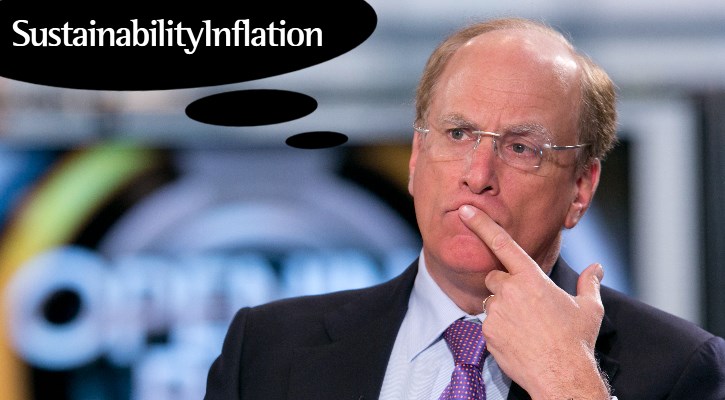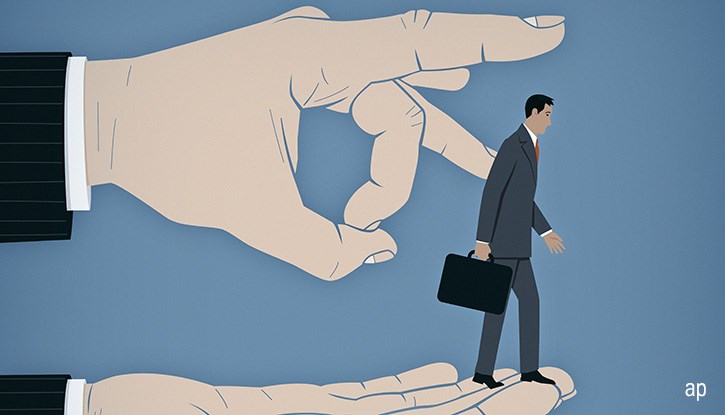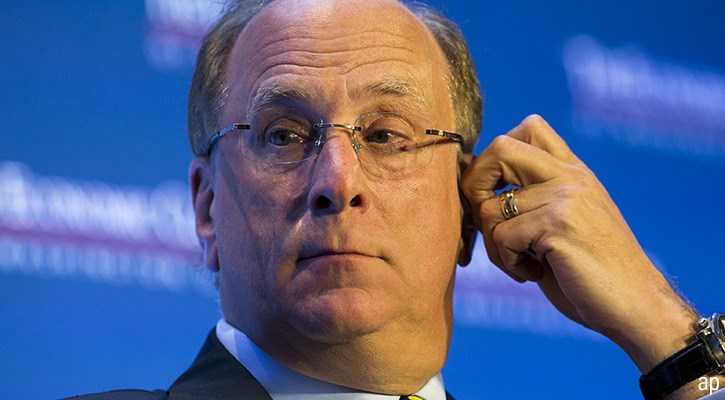Bye Bye Gates of Hell
I have witnessed some dramatic closures in my short life. The death of high street stalwart Woolworths was one, as was the end of American Adventure, the Derbyshire theme park whose failure was, at the time, a crippling personal blow. Things are somewhat mundane now I’m an adult. BlackBerry’s decision to shut off life support on its once-iconic qwerty phones barely registers amid all the noise and chaos of the modern world (more on that below). But there’s one closure that’s caught my eye. A burning crater colloquially known as the gates of hell in Turkmenistan looks set to be extinguished, if the country’s leader is to be believed. As Morningstar senior editor James Gard highlights, there are ample substitutes, the approach to Wembley IKEA surely being one.
We Are Closer Than Ever to a New Government
Speaking of whether leaders are to be believed, Boris Johnson’s non-apology in the House of Commons this week may have staved off the inevitable for a few more days, but there was a marked sense of things beginning to properly turn against the Prime Minister. Though they are but humble backbenchers, MPs not normally found commenting in national public forums are making their first foray into the quagmire by demanding he resign. Way to nail your colours to the mast.
Old People Don’t Like Change (or Do They?)
While all that was going on, the House of Lords’ Economic Affairs Committee was debating the merits of a new UK central bank digital currency (CBDC). But it doesn’t look good for the cringingly nicknamed “Britcoin”. Though the Treasury and Bank of England has thrown their collective weights behind the idea (in principle), the esteemed red benchers are convinced the idea poses “significant risks” to the UK, including “state surveillance of people’s spending choices, financial instability as people convert bank deposits to CBDC during periods of economic stress, an increase in central bank power without sufficient scrutiny, and the creation of a centralised point of failure that would be a target for hostile nation state or criminal actors.” But otherwise it’s a great idea. Looks like they’ll be paying for subsidised pints in the Lords bar with old-fashioned shrapnel then.
US Prices Are Still Running Hot
US inflation remained an American Adventure of its own kind at the end of 2021, even as energy prices pulled back, supply chain bottlenecks unravelled, and the Federal Reserve signaled a determination to raise rates and help keep inflation under control. The Consumer Price Index CPI) rose 7.0% in December from year-ago levels, the largest 12-month rise for inflation since 1982. Morningstar's chief economist had this to say about the situation in his helpful explainer, which you can read here.
Airbus Has Its Wings Clipped
While I was enjoying American Adventure’s “missile” rollercoaster (it had two loop-the-loops), the world was awaiting the globally-vaunted Airbus A380. Fast forward through the financial crash, austerity, the Eurozone crisis, some World Cups, and the pandemic, and the aviation world looks very different indeed. This week, Airbus had its wings clipped by Boeing, which has pipped it on orders received on an adjusted basis. Airbus is still delivering more aircraft, and, after a Boeing Dreamliner was forced to make an emergency landing in Poland this week, the manufacturing giant has no reason to be complacent. The company is, after, all, only just starting to put its 737 Max woes in the past.
BlackRock’s CEO Just Coined Another New Phrase
BlackRock chairman and CEO Larry Fink is credited with turning Wall Street on to ESG, but he’s not finished there. In a conference call with customers and commentators yesterday, America's arch-asset manager took aim at governments, whose failure to drum up sensible carbon transition policy is stoking what he called “sustainability inflation.” I was on the call with Morningstar data journalist Sunniva Kolostyak. Check out our summary of the highlights here, including his take on the equities correction and what it means for savers. Personal suggestion: Larry should launch his own organisation to promote policy change. Title? FinkTank.
Book Sales are Entering a New Chapter
The pandemic has wrought unprecedented chaos on all our lives, but one thing it has caused is an uptick in the number of books sold to consumers. According to The Bookseller magazine and official book sales monitor Nielsen BookScan, UK book sales grew 5.2% in 2020, totalling 202 million books sold. It’s the largest rise since 2007, though why it has taken this long to get hold of 2020 figures is anybody’s guess. It wouldn’t surprise me if someone was writing each sale down in, erm, an actual book.
BlackBerry’s no Longer Ripe For The Picking
BlackBerry’s much-publicised pivot to software development is among the biggest corporate survival stories the world has seen. But unfortunately for the company our analysts don’t reckon it’s a buy. Morningstar analyst William Kerwin maintains his $9 fair value estimate for no-moat BlackBerry after it reported fiscal third-quarter earnings modestly above his expectations. “We’re pleased to see steady sequential growth for BlackBerry’s software and services sales through fiscal 2022 thus far, but we view cybersecurity and Internet of Things revenue trending below the firm’s initial fiscal year guidance as disappointing, even despite headwinds in its QNX auto business," he said. "We still expect robust growth from BlackBerry’s QNX auto sales, and nonetheless view continued design win acceleration as positive in the long term. Even after a small pullback following the release, we continue to view shares as overvalued." (QNX is a software operating system used in safety-critical systems like train controls, medical robots and delivery trucks.)
Kazakhstan’s Crisis is Not a Little Local Difficulty
If you don't know where Kazakhstan is on the map you may want to revise your geography. Unrest in the country may seem a long way away for UK investors but in a connected investment world, volatility in far-off countries can have a ripple effect across asset classes. In this superb geopolitical and financial analysis of the relationship between a frontier market and its far-away allies, Morningstar senior editor James Gard lays bare a case study in globalisation and inflation gone awry. Whether you think it’s an important story or not, it may give you cause to re-assess your risk profile.
SPACs Are a Racket
Special acquisiton companies (SPACs) are a racket you’d be wise to be careful about. So argued Morningstar vice president (and columnist heavyweight) John Rekenthaler in this considered (yet punchy) piece on the winners and losers in the SPAC game. In it, he breaks down the different parties involved in the deal, and explains who makes the money and why. Spoiler alert: it’s not always the end investor. No wonder Donald Trump is interested.






























